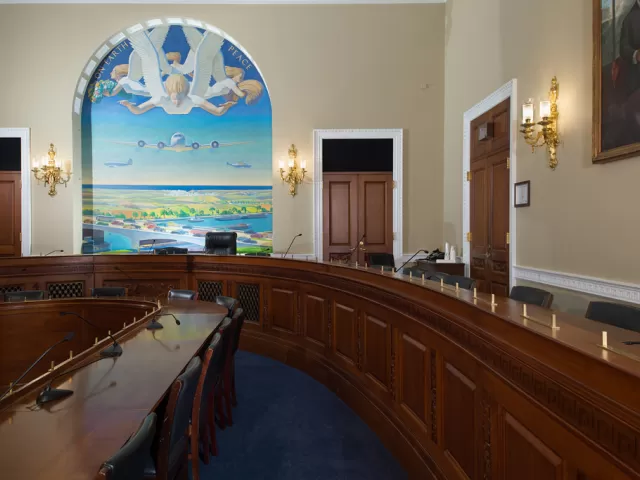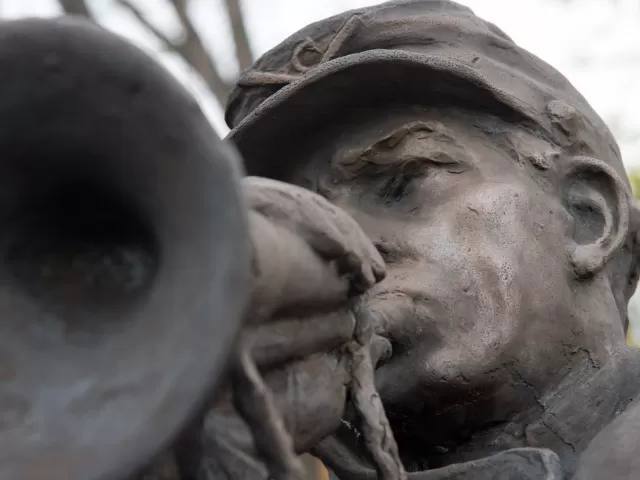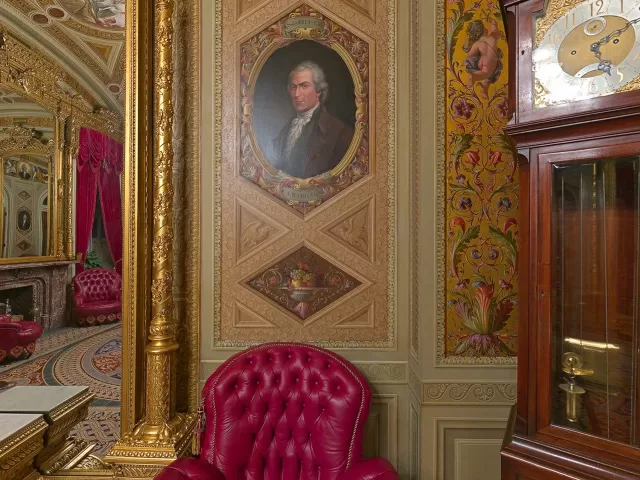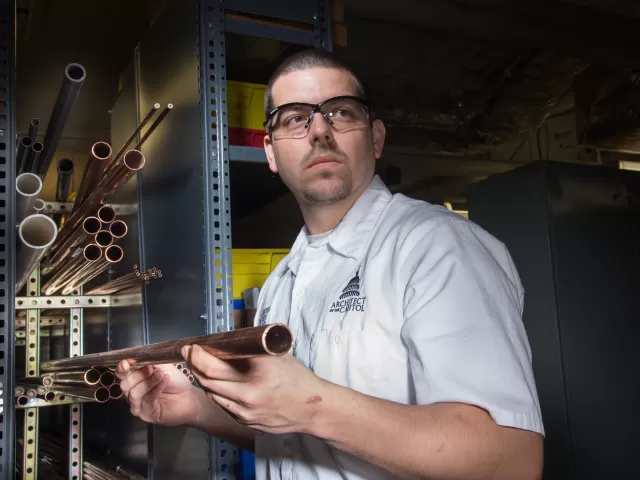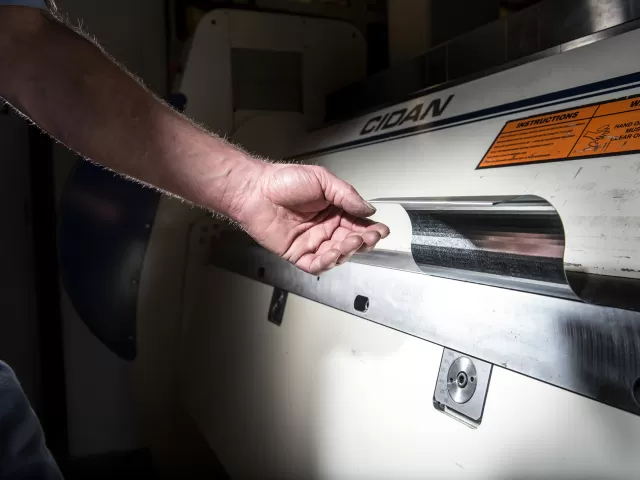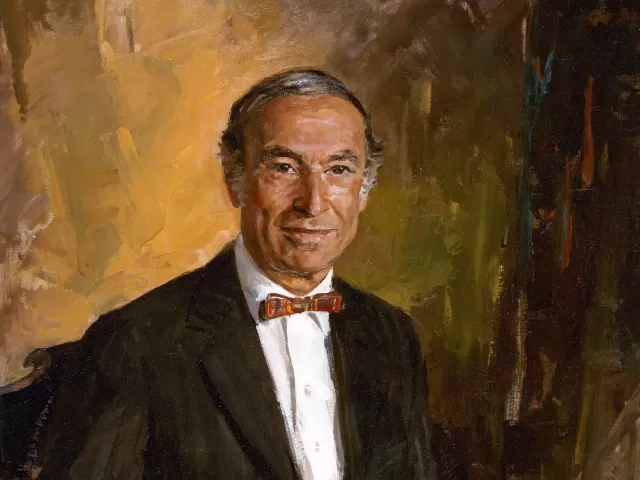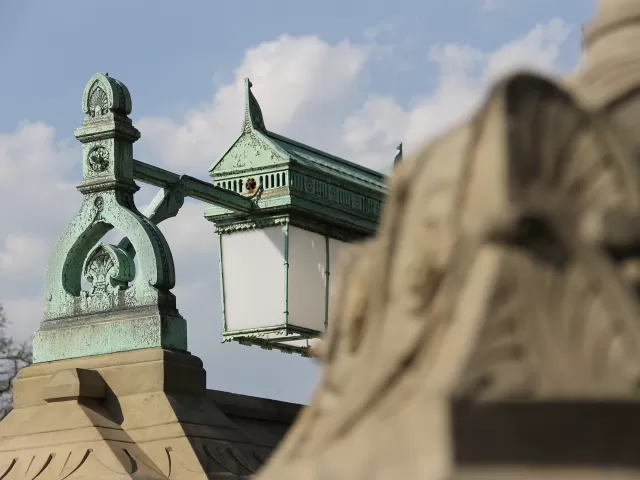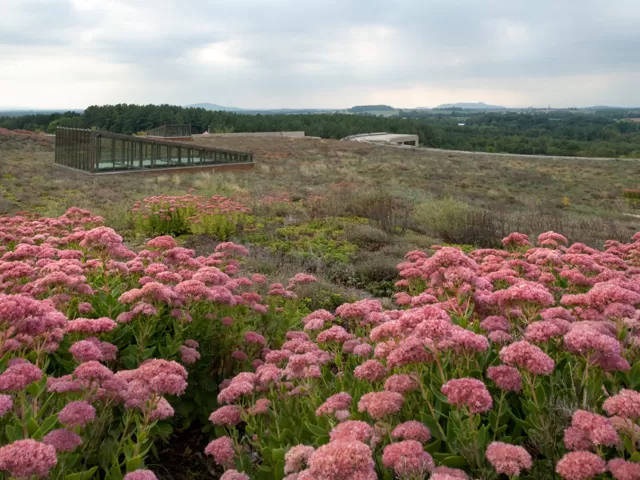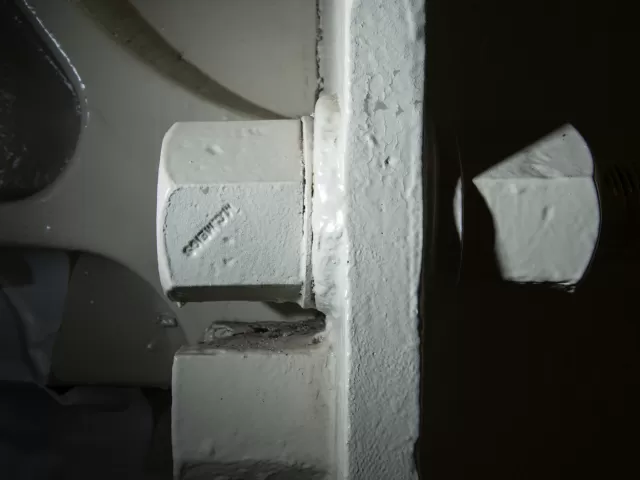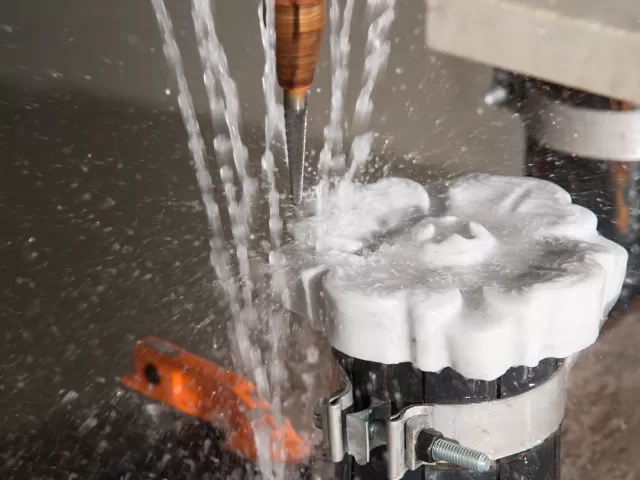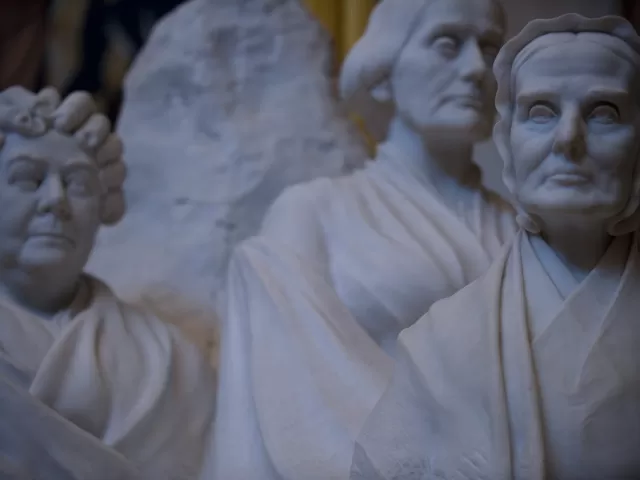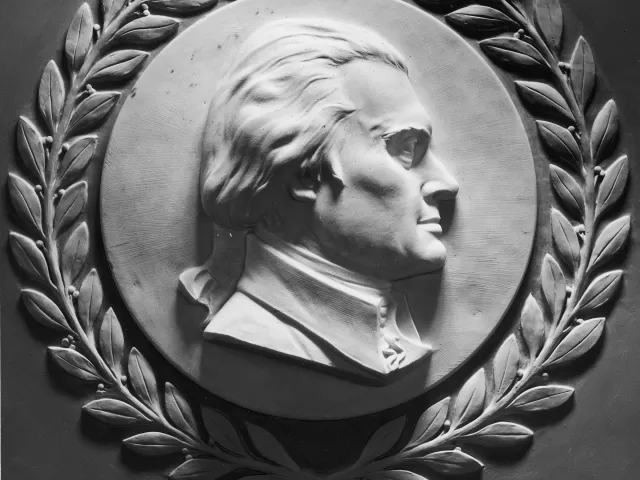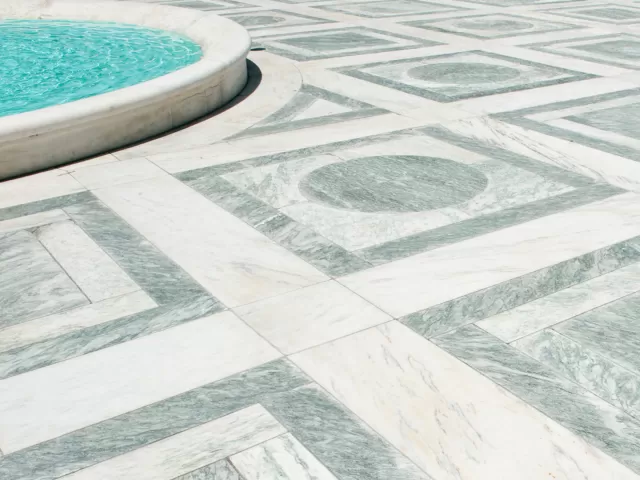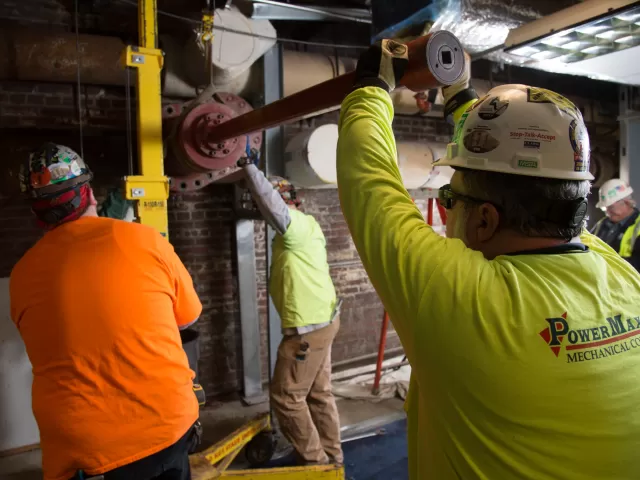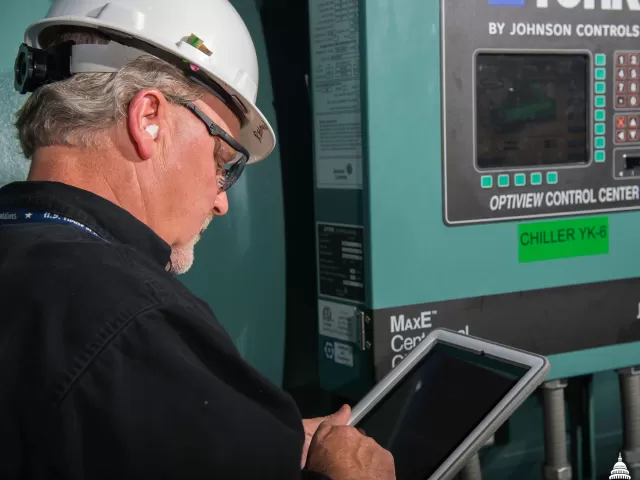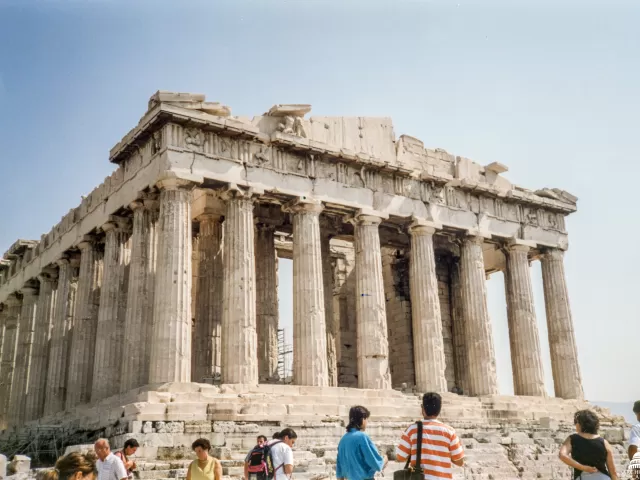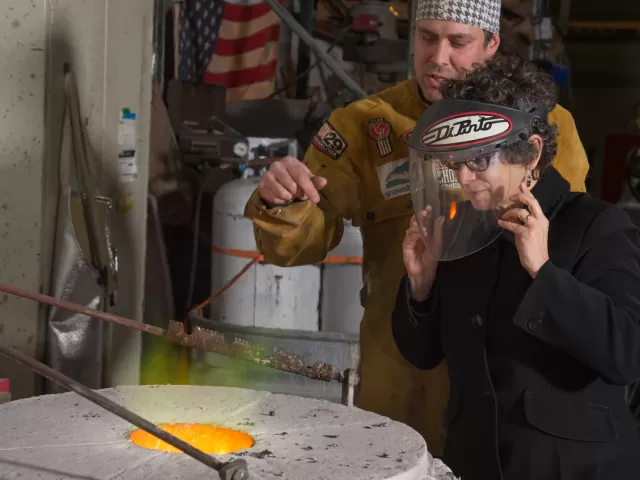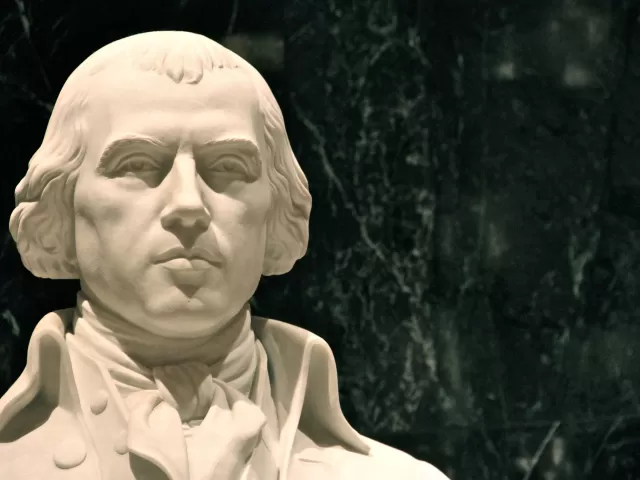Displaying 631 - 660 of 1030 Clear
Highlight
This mural, painted during the Second World War, shows a vision of America at peace.
Projects
Article
The Ulysses S. Grant Memorial in Washington, D.C., is undergoing a dramatic transformation. Curator for the Architect of the Capitol describes the restoration work on the bronze components and marble pedestals. When completed viewers will again see the subtle details of the original sculpture.
History & Discoveries
Article
Here are five pieces of art depicting Hamilton at the U.S. Capitol.
Behind the Scenes
Article
Just below the main floor of the Thomas Jefferson Building at the Library of Congress, the cellar level is home to the Architect of the Capitol's Air Conditioning (AC) Shop for Library Buildings and Grounds. A spectrum of parts and tools — from very small pieces to a 150 horsepower motor that weighs
History & Discoveries
Article
This fall, the National Garden at the United States Botanic Garden (USBG) turns 10 years old. Opened to the public on October 1, 2006, the National Garden is a key element of the USBG, along with the Conservatory and Bartholdi Park. The National Garden's Rose Garden celebrates the national floral
Behind the Scenes
Article
Every one of us at the Architect of the Capitol, in every job we do, uses tools to serve, preserve and inspire. Many of the tools we use here are unique, historic and essential to our mission—in other words, they are cool tools! We asked employees to submit their coolest tool, and this feature
Doing Good
Article
Millions of Americans volunteer every year, but few feel compelled to form their own organization. Greg Smith saw a problem in his community that had no solution, so he created one by starting his own non-profit – Kaizen Life Skills. Kaizen is a Japanese word that means continuous improvement, and
Person
Appointed January 27, 1971; Retired November 21, 1995. George M. White, FAIA, was appointed Architect of the Capitol in 1971. He was the last person to be appointed without the advice and consent of the United States Senate to a term of unspecified duration. As Architect of the Capitol, White
From the Architect
Article
Architect of the Capitol Stephen T. Ayers reflects on influences in his work, and the work of others, at the U.S. Capitol. We are all an assembly of parts, pieces and life experiences, and we bring those experiences to the things we do every day. It's what makes us who we are! I've come to learn
Behind the Scenes
Article
The Architect of the Capitol (AOC) achieved an extraordinary goal at the end of Fiscal Year (FY) 2015 — successfully meeting the mandate to reduce energy consumption more than 30 percent from our 2003 baseline. This 30 percent reduction is a major accomplishment on its own. But it's even more
History & Discoveries
Article
Montgomery C. Meigs played a critical role in building a number of well-known landmarks in D.C. To ensure his credit would be preserved in history, Meigs was notorious for seizing opportunities to get his name inscribed on any items related to these monumental projects that he could. Meigs' name on
Behind the Scenes
Article
In 2014, Architect of the Capitol Stephen T. Ayers stood before a large group of bicycle enthusiasts to accept a Bicycle Friendly Business Honorable Mention Award from the League of American Bicyclists. In his speech he challenged his staff to get the Architect of the Capitol (AOC) designated as a
Programs & Events
Article
"Music gives a soul to the universe, wings to the mind, flight to the imagination and life to everything." ― Plato The laying of the U.S. Capitol's cornerstone on September 18, 1793, would not have been complete without appropriate celebration. When President George Washington led a company of
Projects
Article
To answer this question, we travel to a brick building in Vienna, Virginia, where the hum of an industrial-sized machine is unmistakable. Littering the fenced-in courtyard of the building are massive slabs of stone of all shapes and colors. Carving of a new rosette begun by a computerized numerical
History & Discoveries
Article
In 1914, President Woodrow Wilson signed a measure officially establishing the second Sunday in May as Mother’s Day. From historical figures to allegorical representations, images of women are found throughout the U.S. Capitol Building in the art and architecture. While not the only mother in the
Behind the Scenes
Article
Reducing energy use at the Library of Congress (LOC) was critical in meeting the Architect of the Capitol's (AOC) energy reduction goal of 30 percent reduction by the end of fiscal year 2015. The Architect of the Capitol maintains the facilities for the LOC, and the AOC Library Buildings and Grounds
Behind the Scenes
Article
The Energy Policy Act of 1992 authorized the use of private sector financing to implement energy conservation methods and energy-efficiency technologies by federal entities. Congress provided a mechanism, through Energy Savings Performance Contracts (ESPC), to accelerate investment in cost-effective
History & Discoveries
Article
Our nation's third president has his successes, as well as himself, memorialized in more than 10 pieces of art in the U.S. Capitol Building.
Behind the Scenes
Article
The Architect of the Capitol (AOC) achieved a 30 percent total energy reduction by the end of fiscal year 2015 that was mandated by the Energy Independence and Security Act of 2007. The Senate Jurisdiction's efforts were integral to the AOC meeting its agency-wide goal. One of the key-energy saving
History & Discoveries
Article
There are more than 20 water features that Architect of the Capitol employees care for. Spanning across the Capitol campus, each of the House office buildings, Senate office buildings, Library of Congress buildings, Supreme Court buildings and the U.S. Botanic Garden have some type of fountain or
Projects
Article
Of the many challenges associated with maintaining and renovating a building that is more than 100 years old, one of the most difficult is working on the building's water systems. In buildings such as the Cannon House Office Building, the traditional method of fixing a water issue is to drain the
Behind the Scenes
Article
The Architect of the Capitol (AOC) focuses on energy and sustainability efforts in a cost-effective manner to maintain efficient, high-performing and healthy buildings across the Capitol campus. The Energy Independence and Security Act of 2007 required the AOC to annually reduce its energy
Doing Good
Article
Paddle. Fish. Heal. "I like helping people, and veterans are at the top of the list of people I want to help." Before Electrician Martin Blanchet joined the Architect of the Capitol (AOC) in 2003, he had served in the Army twice, first from 1984 to 1988 and then from 1997 to 2003. His service
From the Architect
Article
The beautiful buildings on the Capitol campus are full of thousands of decorative details. So many details in fact, that visitors and workers alike will often see something new each time they are here. This richness and depth inspire me every day. I've always wanted to be an architect. So naturally
History & Discoveries
Article
According to the U.S. Census, about 33 million Americans claim Irish ancestry – that's about five times the population of the entire Emerald Isle. March is Irish-American Heritage Month and the President issues a proclamation commemorating the occasion each year. For Americans of Irish heritage
Behind the Scenes
Article
Greek philosopher Socrates once said, "Education is the kindling of a flame, not the filling of a vessel." The heritage assets managed by the Architect of the Capitol's (AOC) Curator Division document the historic moments and changing attitudes of the American people. Walking through the U.S
History & Discoveries
Article
March 16 marks the birthday of our nation's fourth president. James Madison co-wrote the Federalist papers and sponsored the Bill of Rights. To celebrate this special occasion, we are highlighting the art featuring or including Madison on the Capitol campus. The most visible homage to the "Father of
History & Discoveries
Article
As the temperature cooled down this winter, we asked Architect of the Capitol (AOC) employees to join a hot (and friendly) competition – AOC Cool Tools – and share the cool tools they use to get their jobs done. Every employee, in every job we do, uses tools, from a crane that lifts heavy loads to
Behind the Scenes
Article
The Architect of the Capitol's (AOC) Senate Subway Branch operates two subway systems to transport senators, staff and escorted visitors between
Behind the Scenes
Article
During World War II, an iconic image that emerged to represent American women working in factories and shipyards while men were serving in the military, was Rosie the Riveter. The image was used to encourage women to enter the workforce to serve the war effort in factories. In 1948, three years
